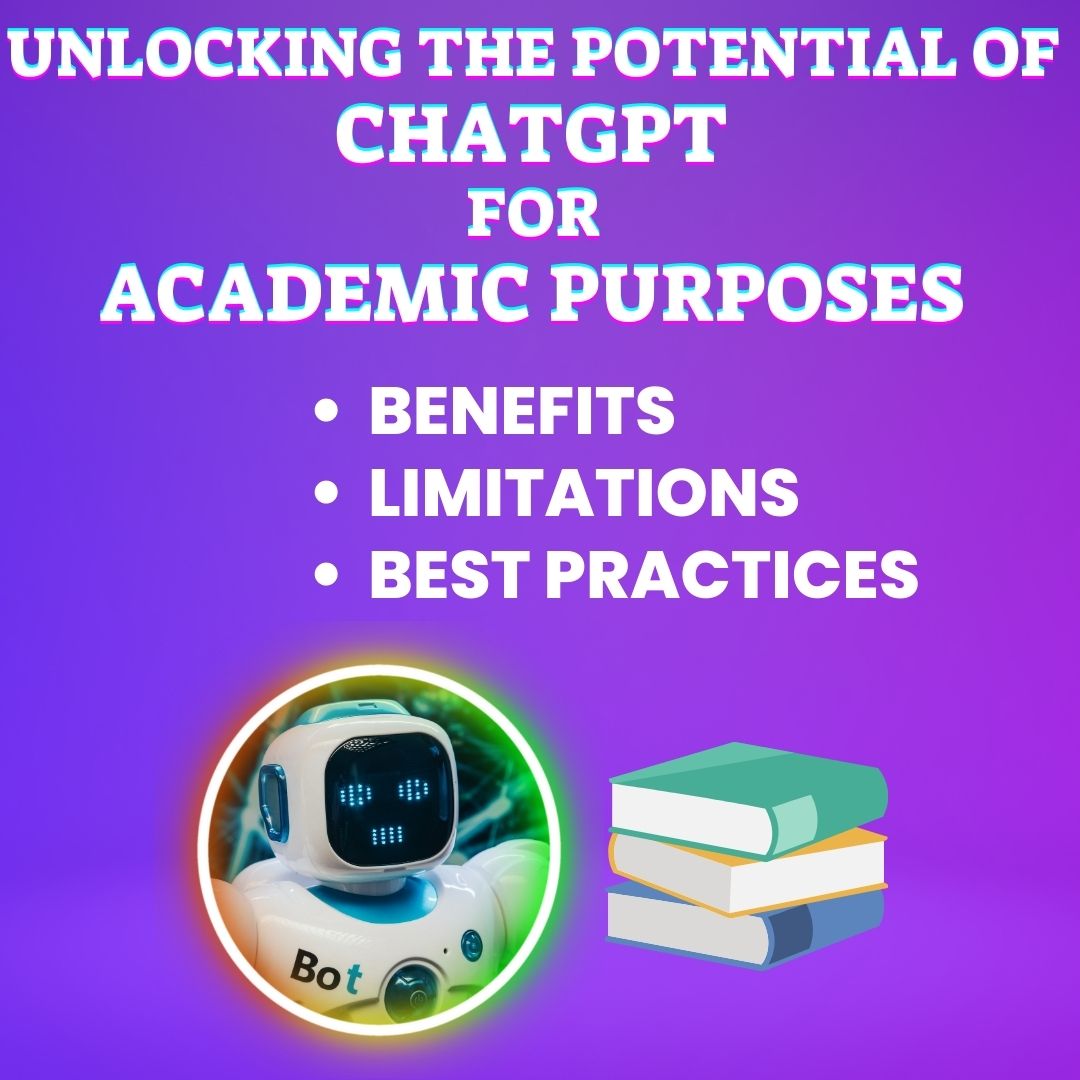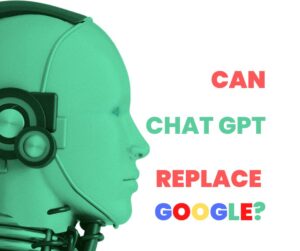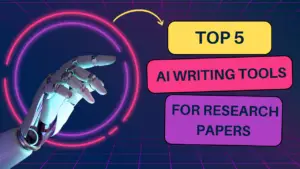As a language model, ChatGPT is a powerful tool for various academic purposes. Whether you are a student or a researcher, ChatGPT can be an excellent resource for generating ideas, finding relevant information, and answering questions related to your academic field.
In this article, we will see how ChatGPT can be used for academic purposes and explore the benefits and limitations of this technology. Also, we provide some tips on how to use ChatGPT effectively and ethically.
What is ChatGPT?
ChatGPT is an NLP model based on the GPT-3 architecture from OpenAI. It can understand the natural language input and respond to it. ChatGPT is trained on massive text data and can generate human-like responses to various prompts.
ChatGPT can access through various platforms, such as OpenAI’s API or web-based chatbots that utilize the model. Users can input text prompts or questions. ChatGPT generates a response based on its understanding of the input and its knowledge of the relevant information.
Using ChatGPT for academic purposes
ChatGPT is a valuable tool for various academic purposes, such as generating ideas for research topics, finding relevant information, and answering questions related to your field of study. Here are some of the ways, ChatGPT used for academic purposes:
Generating research ideas
One of the challenges of academic research is coming up with a research question or topic. ChatGPT is an excellent tool for generating ideas and exploring different directions for your research.
To use ChatGPT for generating research ideas, you can input a prompt related to your field of study and see what ideas or perspectives it generates. For example, suppose you are studying psychology. In that case, you could input a prompt such as “What are some emerging trends in the field of psychology?” and see what ideas ChatGPT generates.
Finding relevant information
Another use of ChatGPT for academic purposes is finding relevant information for your research. ChatGPT can provide quick and easy access to information on various topics, including academic journals, research papers, and other relevant sources.
To use ChatGPT for finding relevant information, you can input a prompt related to the information you seek. For example, suppose you are researching the effects of climate change on agriculture. In that case, you could input a prompt such as “What are some recent studies on the effects of climate change on agriculture?” and see what information ChatGPT generates.
Answering questions
ChatGPT can also help answer questions related to your field of study. Whether you are a student seeking help with a homework assignment or a researcher seeking clarification on a complex topic, ChatGPT can provide insights and explanations to help you better understand the subject matter.
To use ChatGPT for answering questions, you can input a prompt related to your question. For example, suppose you are studying physics and have a question about the laws of motion. In that case, you could input a prompt such as “Can you explain the three laws of motion?” and see what explanation ChatGPT provides.
Benefits of using ChatGPT for academic purposes
Using ChatGPT for academic purposes can offer several benefits, including:
Access to a vast amount of information
ChatGPT has access to a massive corpus of text data, including academic journals, research papers, and other relevant sources. It can provide quick and easy access to vast information on various topics, which can be invaluable for academic research.
Quick and easy answers
ChatGPT can generate responses to prompts almost instantly, saving students and researchers time and effort. Instead of spending hours searching for information or struggling to develop ideas, users can input a prompt and receive a response within seconds.
Unique insights and perspectives
ChatGPT can generate ideas and insights the user may have yet to consider. Its ability to analyze and interpret large amounts of text data can lead to new perspectives and ideas useful for academic research.
24/7 availability
ChatGPT is available 24/7, meaning users can access it anytime, regardless of location or time zone, which can benefit students and researchers working on projects outside regular business hours.
Limitations of using ChatGPT for academic purposes
While ChatGPT is a helpful tool for academic purposes, it has limitations. Some of the limitations include the following:
Lack of context and nuance
ChatGPT generates responses based on its understanding of the input and its knowledge of the relevant information. However, it may need more context and nuance human experts can provide, which can be particularly problematic for complex topics that require a deep understanding of the subject matter.
Inaccurate or incomplete information
ChatGPT may generate inaccurate or incomplete information in response to specific prompts, which can be particularly problematic for academic research, as accurate or complete information can lead to incorrect conclusions or flawed research.
Limited ability to evaluate sources
ChatGPT needs to be able to evaluate the quality or credibility of sources. It may generate responses based on unreliable or biased sources, which can be problematic for academic research.
Ethical concerns
Using AI language models like ChatGPT raises ethical concerns about plagiarism and academic dishonesty. Users need to ensure that they are using ChatGPT ethically and responsibly.
Tips for using ChatGPT effectively and ethically
To use ChatGPT effectively and ethically for academic purposes, consider the following tips:
Use ChatGPT as a starting point, not a definitive source
ChatGPTis a helpful tool for generating ideas and finding information. Still, it should not be the sole source of information for academic research. Use ChatGPT as a starting point and verify its information with other sources.
Evaluate the quality and credibility of sources
ChatGPT cannot evaluate the quality and credibility of sources. Users have to evaluate the sources and ensure they are reliable and unbiased.
Use ChatGPT to supplement, not replace, human expertise
ChatGPT can provide insights and perspectives the user may have yet to consider, but it should not replace human expertise. Consult with human experts in your field to ensure your research is accurate and reliable.
Use ChatGPT ethically and responsibly
Using AI language models like ChatGPT raises ethical concerns about plagiarism and academic dishonesty. Ensure you use ChatGPT ethically and responsibly by citing sources and giving credit where credit is due.
ChatGPT is a powerful tool for various academic purposes, including generating ideas, finding relevant information, and answering questions related to your field. However, it is essential to recognize the limitations of ChatGPT and use it ethically and responsibly.
Using ChatGPT effectively and responsibly saves students and researchers time and effort while gaining unique insights and perspectives on their subject matter. Ultimately, ChatGPT can be a valuable resource for academic research. Still, checking with other sources and human expertise is always necessary.
NLP – Natural Language Processing
Disclaimer: This article is published in good faith and for general information purpose only. CHANDRAS EDU does not make any warranties about the completeness, reliability and accuracy of this information.
Check out more articles in Home page.
If you have any suggestions, comment below or contact us at admin@chandrashaker.com
If you find this article interesting and helpful, don’t forget to share it with your friends.



